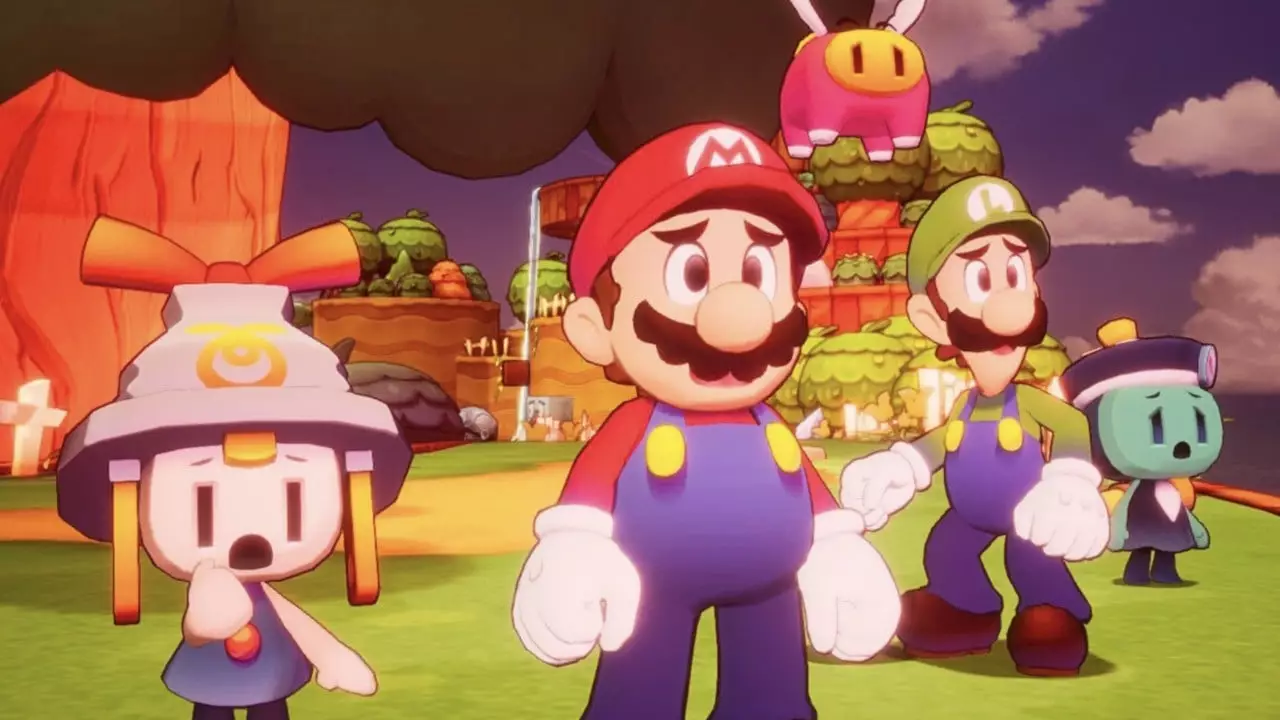In the vibrant world of video games, names carry immense weight; they not only encapsulate the essence of the game but also set expectations for players. Recently, developer Acquire disclosed that alongside Nintendo, they brainstormed more than 100 potential titles for their upcoming RPG. Among those titles was the intriguing suggestion of “Mario & Luigi Wonder.” However, this promising title was ultimately shelved, leading to the birth of “Mario & Luigi: Brothership.” This decision has sparked conversations among fans about the creative process behind one of the beloved franchises in gaming history.
The timing of game releases often impacts their associated branding and titles. It’s particularly noteworthy that “Super Mario Bros. Wonder” was released on October 20, 2023, just before “Brothership” began to cement its identity. Producer Akira Otani noted that he initially had hopes of incorporating “Wonder” into the title of the RPG. Still, the unexpected overlap in terminology led to a strategic pivot. The fact that both titles were developed concurrently yet with such different focuses illustrates the intricate landscape of game production where even minor details can lead to substantial changes in branding strategy.
When discussing the name “Brothership,” Otani highlighted its dual meanings. The word “ship” can refer literally to a vessel—the brothers’ home base—and metaphorically to the friendship and camaraderie shared between Mario and Luigi. This layered significance enriches the title and enhances the game’s theme of familial bonds. Such thoughtful consideration demonstrates the meticulous approach taken by Acquire and Nintendo towards creating a cohesive identity for the project. While “Mario & Luigi Wonder” may have sparked curiosity, the profound connotation embedded in “Brothership” arguably resonates more with the franchise’s legacy and themes.
One of the more perplexing aspects of this development narrative is the suggestion that the teams may not have been fully aware of each other’s projects leading up to the release of “Super Mario Bros. Wonder.” Given that Takashi Tezuka holds significant roles in both titles, it seems improbable that lines of communication were not active between these high-profile development teams. This begs the question: did project timelines inadvertently collide, or were there deeper discussions that remain behind closed doors? Such miscommunications, while comical, shed light on the complexities involved in the video game creation process.
Despite these titling tensions, community sentiment appears largely positive towards “Brothership.” Many fans have expressed that the original name “Mario & Luigi Wonder” lacks the same emotional depth, seeing the shift as beneficial. Ultimately, the evolution of the title reflects a dynamic interplay between creative vision and external circumstances—a narrative that resonates with anyone engaged in the creative arts. As players eagerly await the game’s release, they are left to ponder the intricacies of game development, from title selection to the relationships that drive these beloved franchises forward. Would “Mario & Luigi Wonder” have held similar weight, or does “Brothership” indeed capture the essence of the brothers’ classic dynamic? Only time will tell.

